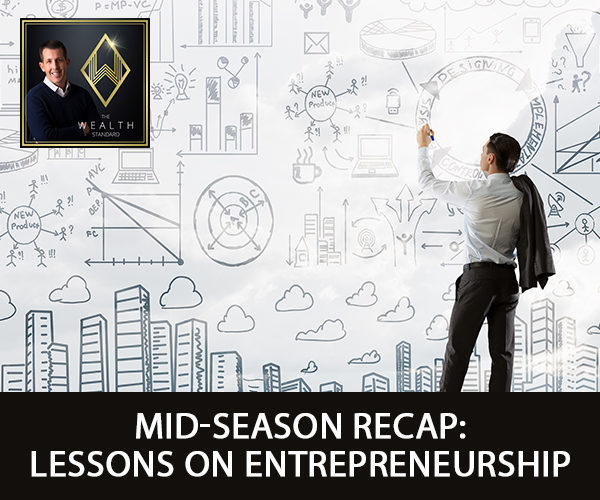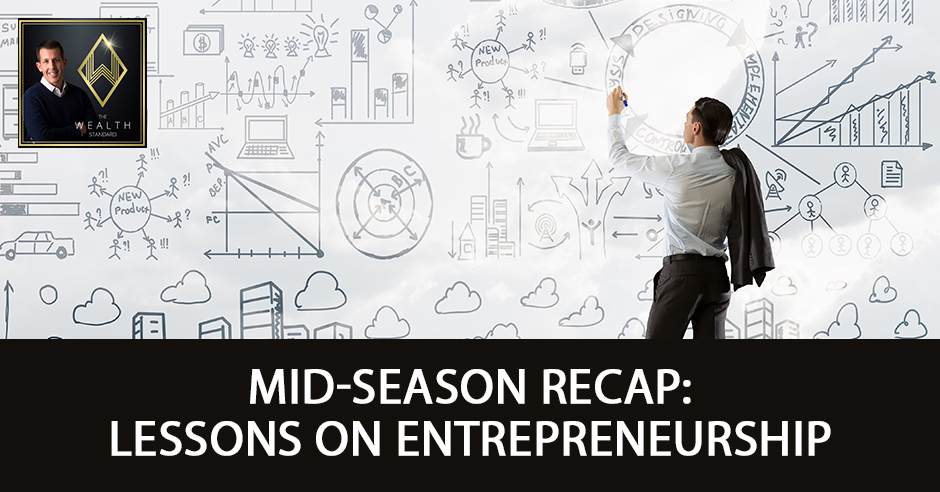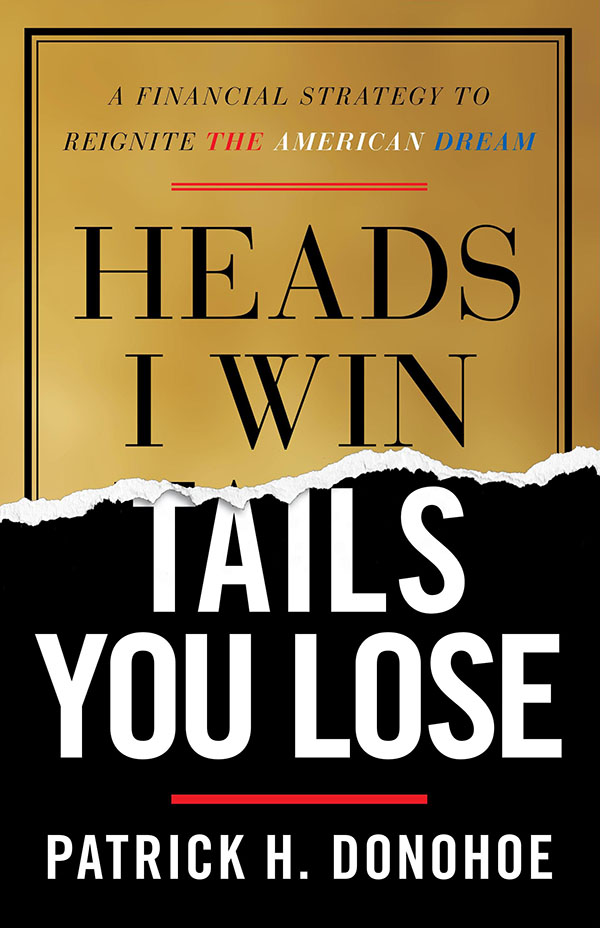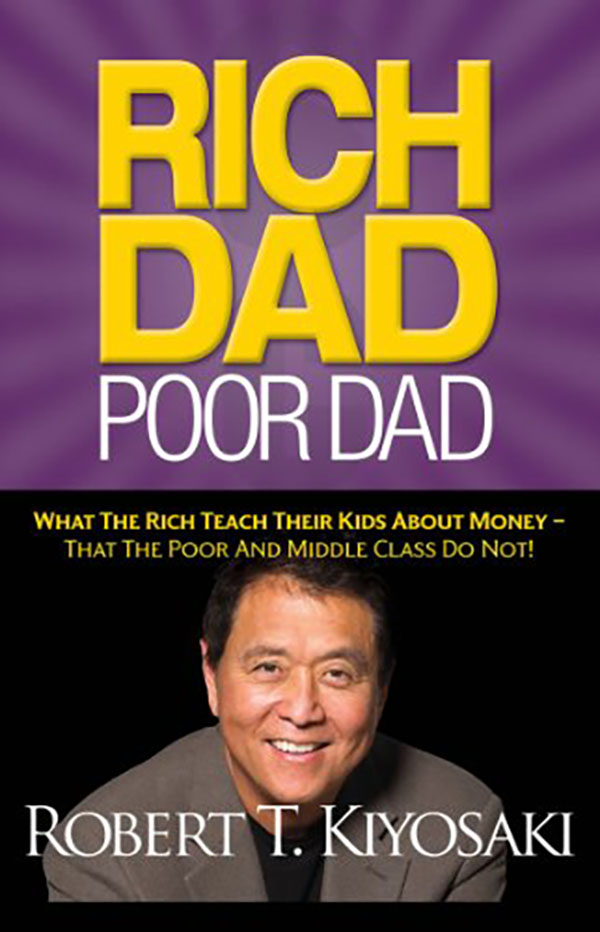The Driving Principles Of Human Progress with Dr. Walter E. Williams
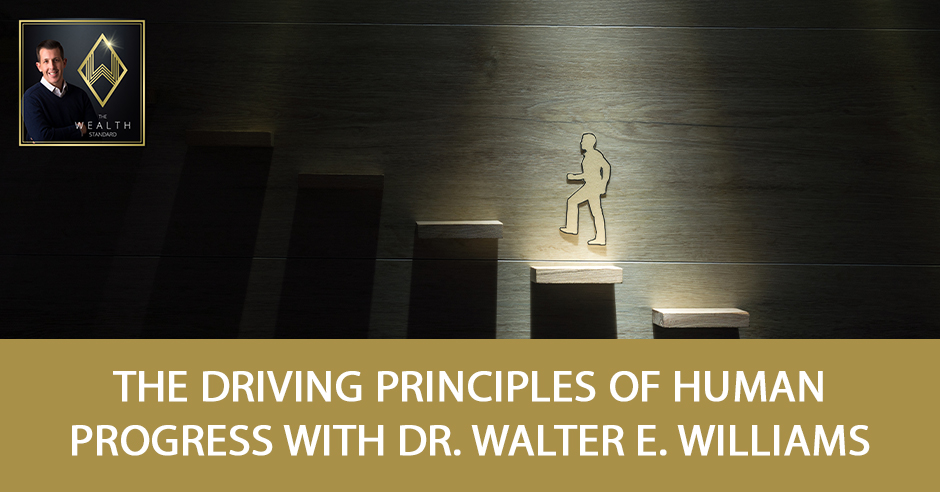
Human progress and societal growth almost always influence each other. The increased pressure and the ability of man to rise to challenges paves the way for more learning and growth. In this episode, Patrick Donohoe interviews Dr. Walter E. Williams, an economist, commentator, and academic, to talk about societal or human progress. Dr. Williams explains that the core driving principles and structure of society is paramount to the idea of capitalism and discusses the environment in which capitalism most thrives.
—
Watch the episode here:
Listen to the podcast here:
The Driving Principles Of Human Progress with Dr. Walter E. Williams
Thank you so much for reading into this episode of The Wealth Standard. We are still talking entrepreneurship. A couple of episodes left before we move on to our next season. This is an episode I had been looking forward to for quite some time and it’s with an individual named Walter Williams. He is a Distinguished Professor of Economics at the George Mason University. He is also the former chairman of the audit committee, also a best-selling author of Up from the Projects: An Autobiography on race economics. How much can be blamed on discrimination? It’s a question in the subtitle. He also wrote American Contempt for Liberty as well as Liberty Versus the Tyranny of Socialism: Controversial Essays. Walter also told me that there was a video done based on his biography, which is called Suffer No Fools. All of those links can be found at WalterEWilliams.com.
—
I’m going to do some commentary on my interview with Walter Williams. I’m going to do a pre-interview commentary and then some post-interview commentary and give you an idea in the pre of why I am asking the questions I’m asking. In the post, I’ll expand on some of those ideas if you’re interested. The first thing that’s influencing me to think and to make even more sense out of entrepreneurship and what is essentially some of the resources I can provide you as budding, existing or experienced entrepreneurs is first a book that is intrigued me called The Mystery of Capital. The reason why it’s intrigued me is that it’s an individual who definitely leans toward free-market economics, laissez-faire, capitalism. He’s a pro personal liberty. At the same time, he’s talking about some fundamental structure of society that is paramount to the idea of capitalism. It’s caused me to think differently. I’m still in the process of thinking about what he is saying, what it means and how it could improve my understanding of capitalism, of human nature and help me to be more fulfilled and satisfied with what I’m doing in life. This is some of the points that he makes. Pick up that book. He’s a great writer. If you haven’t read it before or if you’re intrigued by some of the themes we’ve had, this is definitely a guy to follow.
The idea of The Mystery of Capital, we’ve used that word so much, but we haven’t gone to the root of that word and where it came from, which the first thing that was intriguing to me. It comes from the root of the same word of cattle. There’s a difference between cow and cattle. Where capitalism came from was the idea that human beings figured out a way to take a piece of property and turn it into so many different things. That’s what de Soto defined as capital. Not necessarily the cow itself, but the human being able to figure out how to create forms of value. Whether it’s the hide turning it into leather, whether it’s meat, whether it’s milk, whether it’s the other parts of the cow, which I think human beings have figured out a way to use every single part of it. That’s the capital, not necessarily the cow itself.
The second is essentially the environment in which capitalism most thrives, which is essentially the physical world full of resources and what goes from simply a resource into what he considers as capital, which is I would say the multiple derivatives of resources. That’s where it’s fascinating to me. Because capital is created there, but there are a structure and an environment in which it thrives better. He goes through and he talks about, I’ll use two examples. The first example is property in general. A property can be defined through intellectual property, an idea. Real estate is obviously physical space. He talks about in the United States, we have a very interesting property system, a legal system, a title system, which he goes to the history in it. The history is pretty fascinating.
It talks about how it’s not a perfect system, but it’s one of the more objective systems that are out there, which shows ownership and that ownership can be legally defended. That is a degree that creates a degree of certainty that allows that human mind to start exercising its tendency to provide those derivatives like a cow. Figure out a way to turn what was essentially a very monotonous routine, just playing into the derivative of it. Turning a property into a golf course. The golf course is the capital, not necessarily the property. Turning a blank lawn at your home into a beautiful landscape. I think that derivative is capital.
The human mind engages once that degree of certainty is there. He goes through a lot of the legal systems of property, real estate specifically in other parts of the world. He talks about the poorest third world countries. There are literally tens of trillions of dollars of capital that’s possible if the legal structure was in place to provide that degree of certainty. Because the human mind is not going to start acting in that way until there is a degree of certainty in which the outcome is more definite than if the property wasn’t able to be verified as that specific person. Therefore, their work to create capital would be for naught. Business is the same way. He talks about the ability to form a business in the US. Of course, there are clunky systems here, but relative to other parts of the world. He uses examples of having his research team go into some South American countries and try to form a business and set up shop. In some instances, it took several months. In some instances, it took over a year and it was extremely expensive to do it. It was full of red tape, full of clunkiness. Therefore, the ability to provide that foundation of certainty prevents and inhibits the human mind from being able to create a legitimate business and improve, innovate and make it even better to provide even more value for people for that. It’s Adam Smith’s invisible hand to be exercised.
It was fascinating and it’s caused me to think about, what is the proper role of government? Is government the best institution to create that system? Maybe, maybe not. It’s created the US property system, but is there a better system? How can governments go from a more loose and subjective system to an even better objective system than what the US has, whether that’s blockchain or otherwise. I think we’re always looking for a more solid foundation, a higher degree of certainty. It’s not conscious, we seek that. It’s caused me to reflect and I asked Dr. Williams a few questions in that regard about the environment and the importance of the environment.
The second thing was I joined the Tony Robbins Platinum Partner Group, which is this membership that you have a couple of separate events that you go to, but you can go to all of his conferences and events. There are typically eight to ten. He does most of them and you get to go to all of those as part of the membership. It’s a huge time commitment, huge financial commitment as well. I pulled the trigger there because I had some experiences that caused me to understand more about myself, what I wanted in life, my relationships and what was holding me back. I decided that I didn’t want it to be an event or an experience that was fleeting. I wanted it to be lasting. That’s why I chose to inundate myself or to immerse myself in that environment for a year.
I’ve been in Amsterdam, Dallas and Las Vegas. I’m going to San Diego and then there are a couple of other events. That immersion is working and it’s allowing me not to drink the Tony Robbins Kool-Aid, but it’s causing me to understand more about myself, more about the importance of psychology and also to value others. Whether it’s those that fit the confirmation bias or those that are a completely different opinion. I think there are so many things that are amazing about Tony Robbins, but it’s not like I believe and in an agreement with 100%. Maybe because of ignorance, it might be because of my experience. Nonetheless, there’s so much value in what he has been able to create as an environment in which people learn and experience that has allowed me to see things.
What’s fascinating about this episode is I did not think he was going to go in the direction that it went. He answered questions from a very interesting standpoint because he’s at a point where he’s not trying to build his career. He’s at a point where I would say people focus more on legacy than they focus on growing and expanding. He’s in his early 80s. He’s isn’t necessarily concerned with an image. I don’t know if he’s ever been concerned with his image. He has taken a stand that is very admirable because it goes against the grain of what the racial norms are as well as with the social norms, the political norms. I think you are going to like this episode. There definitely is so much more that could have asked and expanded upon, but for the sake of time and respect for him, I cut it short and stayed at a very high level. Without further delay, please welcome my guest, Walter Williams.
—
Dr. Williams, it is an honor to have you on. Thank you so much for your time.
Thank you for inviting me.
I have to say I am somewhat intimidated because I have a great deal of respect for you and what you’ve done throughout your career. It took me a long time to come up with some of these questions. The first thing I wanted to ask you is, if you were to boil down your philosophy about society or human progress, what would you say are the core primary driving principles that you would arrive at?
My stepfather told me when I was a teenager that if you ever want to get somewhere in this life, you’ve got to learn to come early and stay late, which means that you have to work hard to get what you want. If you come early and stay late, you’ll eventually succeed at most things that you’re trying. In a sentence or two, that’s my philosophy.
If you are in a society where there is discrimination, you have to be better than others. Click To TweetIt’s interesting that it seems we’re innovating to work less. That’s the drive. Do you see that and what would you say to that?
I’m in my 84th year of life, I’ve seen a lot of changes. I see that people are forgiven for doing things and saying things that would not have been forgiven many years ago. Forms of behavior are accepted now that would not have been accepted before. I think that we’re the worst for it. There are all these modern ideas that you shouldn’t scold people, you shouldn’t hold them accountable. You should not punish them for doing the wrong things. You don’t do very much for the individual, that’s not very compassionate at all.
What would you say are the unintended consequences of that?
You have a society of people that are less accountable. I remember when I was about twelve years old, I was shining shoes and I’m making a little money for myself. One of my responsibilities with the money that I was making was to save money, pay for my school lunches, which is $0.15 or $0.25. I adopted the habit of spending my money and then going to my mother Wednesday or Thursday and asked her for a loan. I would always pay her back. One time I asked her for a loan and she said, “No, I’m not going to give you any money.” I thought she was the meanest person on the face of the Earth. It must have been very hard for her to see me come home from school and virtually inhale the refrigerator. I was starving. However, it’s the last time that happened. To bring it up to more modern times, I was telling that to my wife. I have a daughter who’s now 44 years old, but when she was young, I was telling her the same thing. My wife thought I was awful and she could never do that to my daughter.
I definitely see that. I have two teenagers and a five-year-old and it seems that the society we’re in, things are so easy to come by. Answers are at our fingertips. Food is plentiful and it’s conditioned people to want the here and now without doing much work. I think failure comes a lot, not necessarily because something was done wrong but because they didn’t have the persistence to carry it through.
What you’re talking about is the downside of affluence. We have so much wealth. We as parents, we try to give our children what our parents could not ever give us, but we wind up not giving our kids what our parents did give us that is discipline, responsibility and respect for authorities.
My wife grew up in Mexico and it was not a very nice neighborhood at all. It’s one of those stereotypical neighborhoods. That is to the tee what I would say she started out as a parent wanting to provide kids everything that she had dreamed about. There are unintended consequences to that because it forms habits that don’t necessarily serve a human being later in life.

Principles Of Human Progress: If you ever want to get somewhere in this life, you got to learn to come early and stay late.
We see this with our youngsters expecting things to be given to them on a silver spoon. Kid’s graduating from college not knowing very much, but expect to be a vice president first month at doing the job.
It’s the reality that we live in. I look at how you have championed free markets, personal liberty and limited government. I would say that is definitely not the guiding principle that society is using. Where do you see what we’ve been discussing with the mindset and perspective of the rising generation as it relates to the principles that you have championed for so long?
I’m not very optimistic. I hope I’m wrong about not being very optimistic, but if you ask the question, some people have asked me, “What can we do? Where’s our country headed?” I asked people, “Americans as human beings, are we any way different from the Romans, the Spanish, the French and the British?” These are great empires of the past that went down the tubes. They went down the tubes for generally the same thing that we’re doing now, that is bread and circuses. People are expecting the government to take care of them. As a matter of fact, in 1887 at Queen Victoria’s Jubilee, that if someone had said that Great Britain would become a third-rate nation challenged on the high seats by a six-rate nation, Argentina, and almost lose, you would have been put into the insane asylum. It was inconceivable that anything would happen to Great Britain, but however it did. What’s happening in the United States, we’re headed the same way, maybe at a different rate but we’re going down the tubes.
Our basic, big problem that most Americans do not appreciate is that we have a moral problem. The big moral problem that we have as American people is that the average American believes that it’s okay for the United States Congress to forcibly use one American to serve the purposes of another American. That means to take your money and my money to give to farmers, to bail out banks, to get the poor people, to give foreign aid. All the thousands of federal programs, the average American thinks that is okay. That’s not a part of our history. It’s nowhere authorizing the United States Constitution for Congress to be in the business of taking the money of one person and giving to another. As a matter of fact, if I did the same thing privately, I would be condemned as a thief and in prison because that is nothing more than legalized theft.
I’m not making the argument about taxes. We all should pay our share of the constitutionally-mandated functions of the federal government, but there’s nothing in the constitution that authorizes Congress taking the earnings of one person and giving it to another. I’m not saying that I’m not for helping our fellow men in need. I think helping one’s fellow men in need by reaching into one’s own pockets to do so is praiseworthy and laudable. Helping one’s fellow men in need by reaching into somebody else’s pockets to do so I think is worthy of condemnation. For the Christians among us, when God gave Moses the Eighth Commandment saying, “Thou shall not steal,” he probably did not mean thou shall not steal unless you’re going a majority vote in the United States Congress.
I read a quote and I was thinking about it, “Beliefs are a poor substitute for experience.” I look at what you said on the surface, it seems like it is a moral good where people are being taken care of. At the same time, you don’t provide and don’t allow for the actual experience of people to take care of others and be charitable.
The emerging people are the most charitable people on the face of the Earth. That is all these welfare programs did not start until the 1950s or 1960s and maybe a few in the 1930s. We went from a poor nation in 1792 until about 1930s and became the richest nation and the most powerful nation on the face of the Earth without all these programs that people say are necessary. For example, Social Security, people say that is necessary. Social Security system started in 1936. What in the world did we do between 1792 and 1936 to take care of old people? Old people died in the homes of their children. There is something to be said in the Biblical admonition to honor thy mother and father. With
Social Security and all these programs for elderly people, they don’t have to honor their mother and father. They can get somebody else to honor their mother and father through tax code. We have some basic moral problems in our society and I don’t see any cure for them.
On top of what we’ve been talking about, robbing of experiencing charity, taking, giving and contributing to somebody else’s life for their wellbeing. It also comes down to I would say it’s a drive that we have to overcome adversity. Every movie that is popular out there seems to have a similar theme where somebody overcomes adversity, they overcome a challenge. When you essentially are robbing people from saving for their retirement or robbing people from getting a job and experiencing how to navigate those waters and improve their resume. You’re essentially replacing those experiences with a supplement or a Band-Aid to it. It goes to that saying, “Beliefs are a poor excuse for the actual experience.”
The tragedy cannot be avoided. People tend to think that what we see has always been, and that’s not true. For example, you’re talking about people working. The last time I asked my mother for money, other than in loans for lunches, was when I was twelve years old. I had all kinds of jobs after school and that we live in a Richard Allen housing project, which is part of the slums in North Philadelphia. I did afterschool jobs, shining shoes, shoveling snow with my cousin on the Redding railroad platform and caddying golf courses.
All these work opportunities do not exist now for young people. You’ll never see a thirteen, fourteen-year-old caddying on a golf course. You’ll never see a thirteen, fourteen-year-old kid shoveling snow off train platforms. The railroad workers union does not want to see a kid doing that for $20 when their member can get $200 for doing the same thing. They’re able to use the law to block that opportunity. There are many work opportunities that are gone. The tragedy is that the average person thinks that is always this way. That is the regulations and the behaviors that we see now, the average person thinks, “It’s always been that way.”
I look at my great conversation with my thirteen-year-old and she’s one of the more entrepreneurial, loves always to be active and has wanted to work for so long. She didn’t fathom this idea of a paper route. That’s what I had when I was her age. She has this bug inside of her to work. It’s a process and the experience of doing something and getting remunerated for it. There are lots of tendency for leisure, but it seems that the more we’re progressing as a society, the less fulfilled and happy we are. Do you think it’s because of that dynamic, not being able to have these types of experiences?
I think it’s that and many other things that we just accept. For example, if you look at some of my columns, I give references to it, the behavior of students towards teachers. Students curse out teachers, teachers are assaulted. For example, in the City of Baltimore in 2015, on average, four teachers were assaulted each school day of the year. When I was coming up as a kid, one would not dream of even cursing at a teacher, much less assaulting a teacher. I remember holding my hand out in elementary school for the ruler. I did something wrong and the teacher whacked my hand with a ruler. A teacher doing the same thing now would be fired if not carried off to prison or corporal punishment. People now replace what worked with what sounds good. I remember I got my butt spanked a whole lot. The worst time to get a spanking is in the summertime when the windows are open and when your friends outside can hear you copping a plea. You go outside and they start teasing you. My mother, if she was doing the same thing now, somebody would send Child Protective Services to arrest her.
We could probably spend an hour talking about just accountability and the nature of accountability and how that is essential for growth. Something intrigued me and I know who Hernando de Soto is. I’ve been going through one of his books, The Mystery of Capital. It talks about the infrastructure as an essential piece of establishing capital and having the human mind engage and create the capital, and then exchange with it. I think it’s a byproduct oftentimes of a free market society or laissez-faire capitalistic society. It caused me to think about how the US, the flaws we often give it that there’s such an incredible infrastructure here. It’s made me think through what is the proper role of a government? What is the proper role of establishing these types of fundamental foundational systems of law? Why is it that some countries like the US established that and others don’t?
I think that one of the things that go unappreciated about capitalism is that throughout mankind’s history, the way that people accumulated a vast amount of wealth was through plundering, looting and enslaving their fellow man. With the rise of capitalism, it became possible for people to accumulate great wealth by pleasing or serving their fellow man. Finding out what their fellow man wants or needs, and getting the resources to produce it in the most efficient manner. If you look at wealthy men through history, how did Henry Ford become so wealthy? He produced things that satisfied his fellow men. Bill Gates, how did he become so wealthy? He didn’t rob anybody. He just produced Windows programs that satisfied his fellow men.
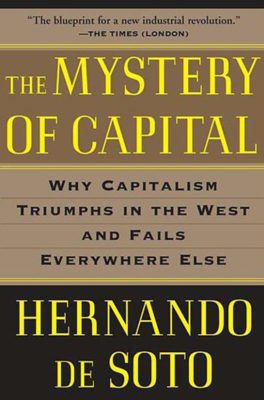
The Mystery of Capital: Why Capitalism Triumphs in the West and Fails Everywhere Else
If you look around at the world, and if you were to rank societies according to whether they’re at the free market and of the economic spectrum or the communism of the political-economic spectrum, rank countries according to personal liberties. You rank countries in terms of capital income, you’d find something that’s not strange at all that the countries that are closest to the free market end of the economic spectrum not only have higher income, but they have greater protection of their liberty. The countries that are towards the communists end of the economic spectrum, those are the people who are the poorest in the world and tend to have the fewest freedoms. If anybody wants to promote wealth and liberty, they should also at the same time promote free-market economic systems.
As we end some of your concluding thoughts, where were you most influenced to believe the way that you believe, think the way that you think? What are some of those pivotal experiences that you had, whether it’s reading a book or meeting somebody or a person of influence that caused you to think in a different way?
Being 84 years old, I’m very happy that I got most of my education before it became fashionable for white people to like black people. What I mean by that is that when I got an A grade in a class, it was an honest to God A. When I got a C, it was honest to God C. Nobody is feeling sorry for me. They held me to high standards. They weren’t giving me any breaks because they say, “This is legacy of slavery or discrimination, etc.” They held me up to very high standards. I received my Doctorate in Economics from UCLA and I had some very tenacious professors that didn’t cut me any slack.
When I took the PhD exam, there were sixteen students who took the exam and thirteen flunked. The professors came to me and they say, “Williams, your exam was among the worst, but we think that you can do better.” They gave me reading lists. They gave me this and gave me that. The next time I took the PhD micro exam, I passed it. If I had gone to Harvard or Berkeley, they might have taken into account slavery, discrimination, etc. and given me a break and just pass me anyway. As a result of having gone to UCLA, Harvard or somewhere of these liberal departments, I’m a better economist as a result.
Would you say that there is a correlation between the extremity of the experience and the actual growth? Let’s say as it pertains to an individual. Because of the increased pressure and your ability to rise to that challenge enabled you to learn more, think more, be challenged more and subsequently grow more.
If you look at any sport, football, boxing, basketball. What the coaches talk to these young people playing, they don’t give them any break. They’re not treating them with kid gloves. They’re trying to get the best out of them and that works when people say, “We’re not going to accept any less than the best that you can do.” Fortunately, I had that experience.
Were you born or identify with a level of confidence at an early age, or was it instilled by your parents? Where did that confidence come from, because most people would cave to that and quit, but what allowed you to rise up?
A hard environment allows an individual to dig deep and understand what is possible for themselves. Click To TweetMy father deserted us when I was three and my sister was two. My mother raised us. She would always tell us, “If you’re number two, you’ve got to do better. You’re in a society where there’s discrimination, you have to be better.” She wasn’t telling us the message that somebody should feel sorry, somebody should give you a break. It was very high expectations. One time when my mother was told how I was misbehaving in school, she took away all of my privileges until the next report card came out and I had improved my grades. That’s tough. She is very important in my life and she’s responsible for setting me up for success.
As a final question, how have you used that, whether it’s with your daughter or your students over the years? How have you created the environment in order for them to grow the most in your presence?
I owe my students up to high expectations. They have to cut the mustard and nothing less is exempted. My daughter is a little bit different because fathers are a little bit weaker with their daughters as opposed to their sons. I was not as pressing with my daughter. Nonetheless, she turned out to be a very good and very successful person.
Dr. Williams, it’s been incredible. Thank you so much for what you’ve written about, what you stood for so many years. What are the ways in which readers can learn more about you and also purchase some of the books that you’ve written or read some of the articles that you’ve published?
There’s a lot of material that I’ve done and it’s on my website, it’s WalterEWilliams.com. Also, there’s a video made based on my autobiography that I wrote and it’s called Suffer No Fools. That’s a one-hour video and that’s available at my website as well.
Dr. Williams, thank you so much and I appreciate the time. This has been a great conversation.
Thank you for inviting me.

Principles Of Human Progress: Having an environment in which you’re able to be persistent should be an opportunity to celebrate as opposed to be afraid of.
Take care.
—
I’m going to get into expanding on a few of the things I talked about pre-interview. I hope you liked Walter Williams. If you haven’t heard him speak, he’s one of those guys where you listened to him, you experience him and you immediately know there is a lot of wisdom and experiences over the years that have caused him to reflect and solidify his view of the world. It’s because of the environment he was in, in which he was able to be nurtured and grow. I found it interesting the first response to the question I proposed, which is, “How would you describe your primary driving principles?” If you boiled everything down to all of the things that he’s experienced, read, teaching students, human progress. It was hard work.
I’m not sure if it’s hard work, meaning the time. I think it’s more of the intensity around the work and the persistence, that dynamic as it relates to work. The reason why I say that I’ve talked about the notion of the Second Law of Thermodynamics, which is the idea of entropy. Where when something dies without an environment, it stays the same. With the environment, it determines what it becomes. That goes to the First Law of Thermodynamics, which in large part is that energy can’t be created or destroyed, it essentially transforms. I found it interesting where the environment, the example I used that I heard from Blair Singer was if a tree falls in the forest, it dies. If it stays in the forest, it essentially becomes part of the forest. It decomposes and it becomes food for the other trees and plants.
If a tree falls in a different environment, like when it falls in the swamp, there’s way more pressure than if it fell in the forest. That pressure turns it into something different. The higher degree of pressure in that environment allows for it to become coal and then eventually a diamond. You have one outcome based on an input. Here’s the input of a dead tree. This is the outcome. The environment is what determines that. I think it was interesting because when there’s an environment of pressure, I believe human beings will often rise to the challenge or quit, but if they do rise to the challenge, what they become in the process is incredible.
Having an environment in which you’re able to be persistent, especially as it pertains to an entrepreneur, looking at how difficult something is should be an opportunity to celebrate as opposed to being afraid of. That goes to what I’ve been learning a lot about psychology. Not from a formalized standpoint, but psychology in Tony Robbins’ definition. That psychology is defined as the way in which we create meaning of something. I think psychology as it relates to who we are, in large part, has to do with the environment that we’re either in or have been in.
I think in those environments are often not chosen. That’s where I’m going to speak to. How can you choose your environments and that dynamic versus not choosing an environment and ultimately have it chosen for you? You look at one of the episodes with Andy Tanner talking about this idea of free speech in a difficult environment, which students want to be protected from emotional harm. I think that protection about emotional harm is the greatest harm itself because it enables this crowd effect. Essentially the psychology and perspective are determined by the group and the crowd, not necessarily by the individual. A hard environment allows an individual to dig deep and understand what is possible for themselves.
I believe that as you choose your environments and the higher the pressure is, the more you’re going to grow and the more you’re going to become. This is where it comes down to, why won’t a person choose those difficult environments? I think it boils down to the principle of fear. I look at fear and it’s interesting because what people are afraid of all boils down to the very same thing, which is a feeling of being discarded, a feeling of being worthless, insignificant, not smart, not loved. That fear is often a defense mechanism. It initiates by being judged. I heard a cool definition of judgment that has caused me to reflect on that. The quote is that, “Judgment is a mask that comes from the fear of being vulnerable.” The fear of being vulnerable is that people will see your weaknesses and then not value you, discard, discount you and ultimately not like you, love you or appreciate you. People have this fear of that, which is incredible.
People today replace what works with what sounds good. Click To TweetIn the end, if you understand those fundamentals, you’re going to realize that it isn’t your problem that someone’s judging you. It’s the person who’s judging’s problem. It’s their fears that are causing them to act that way. The more you understand about yourself and who you are and the meaning that comes from the circumstances of your life, the better you’re going to be able to put yourself in challenging environments in order to grow the most. That’s what I’ve been thinking a lot of and it helped me because I look at how much noise that’s out there in our world. It’s difficult to concentrate and to focus. I believe that within that noise, our chords, there’s this harmonious formula in which we have a better experience of life, but also become successful, which is a part of that fulfilling experience of life.
I’m not sure what each note is of those chords because we all know what noise sounds like. My kids play instruments but going to elementary school orchestra concerts, that’s noise. You’d probably rather listen to something else. I look at then going to a symphony or an orchestra that’s very well-trained professionals. It’s one of the most gratifying experiences. The same instruments, same music but completely different experience because of all of that noise come together in a harmonious way. I think there’s a formula in essence for success, a formula for growth, a formula for fulfillment. I don’t 100% understand it, but that’s what I’m thinking about and seeking. Not just for me, but also for you because I believe human beings are after very similar things. They are after the way something feels. They’re after whatever environment, dynamic or thing gives that sense, emotion and that feeling. I believe that we make it hard to do, which is also funny.
I enjoyed Walter Williams. It caused me to reflect because here’s a guy that has nothing to lose. He’s already made his legacy. He’s written some incredible books. He’s also taught thousands of students and made a difference. He’s at the latter part of his life, and for him to answer the way that he answered the first question was interesting and fascinating. I can see how it led to the success that he had in his industry. I think facing the environment that he was in. He’s an African-American and he is basically cutting against the grain of the liberal agenda, which is often the stereotype of that racial segment of society.
I also look at his views on economics and politics, which is also extremely against the grain. It’s free markets for capitalism. That puts him in a very interesting environment in which he’s probably thought deeply about the important things of life. This is the way in which he decided to answer those questions, which I think should tell us something. I hope you guys learned something from this episode. I’ve got a couple of cool episodes coming down the pipe before we wrap up the season. I hope you’re getting a lot from the show and it’s helping you to be even more successful than you already are. I’ll talk to you next time.
Important Links:
- Walter Williams
- Up from the Projects: An Autobiography
- American Contempt for Liberty
- Liberty Versus the Tyranny of Socialism: Controversial Essays
- Suffer No Fools
- The Mystery of Capital
- Tony Robbins Platinum Partner Group
- Andy Tanner – past episodes
- www.WalterEWilliams.com
About Dr. Walter E. Williams
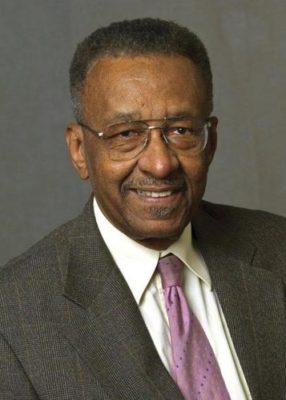 Born in Philadelphia, Pennsylvania, Dr. Walter E. Williams holds a B.A. in economics from California State University, Los Angeles, and M.A. and Ph.D. degrees in economics from UCLA. He also holds a Doctor of Humane Letters from Virginia Union University and Grove City College, Doctor of Laws from Washington and Jefferson College and Doctor Honoris Causa en Ciencias Sociales from Universidad Francisco Marroquin, in Guatemala, where he is also Professor Honorario.
Born in Philadelphia, Pennsylvania, Dr. Walter E. Williams holds a B.A. in economics from California State University, Los Angeles, and M.A. and Ph.D. degrees in economics from UCLA. He also holds a Doctor of Humane Letters from Virginia Union University and Grove City College, Doctor of Laws from Washington and Jefferson College and Doctor Honoris Causa en Ciencias Sociales from Universidad Francisco Marroquin, in Guatemala, where he is also Professor Honorario.
Dr. Williams has served on the faculty of George Mason University in Fairfax, Virginia, as John M. Olin Distinguished Professor of Economics, since 1980; from 1995 to 2001, he served as department chairman. He has also served on the faculties of Los Angeles City College, California State University Los Angeles, and Temple University in Philadelphia, and Grove City College, Grove City, Pa.
Dr. Williams is the author of over 150 publications which have appeared in scholarly journals such as Economic Inquiry, American Economic Review, Georgia Law Review, Journal of Labor Economics, Social Science Quarterly, and Cornell Journal of Law and Public Policy and popular publications such as Newsweek, Ideas on Liberty, National Review, Reader’s Digest, Cato Journal, and Policy Review. He has authored ten books: America: A Minority Viewpoint, The State Against Blacks, which was later made into the PBS documentary “Good Intentions,” All It Takes Is Guts, South Africa’s War Against Capitalism, which was later revised for South African publication, Do the Right Thing: The People’s Economist Speaks, More Liberty Means Less Government, Liberty vs. the Tyranny of Socialism, Up From The Projects: An Autobiography, Race and Economics: How Much Can Be Blamed On Discrimination? and American Contempt for Liberty.
He has made scores of radio and television appearances which include “Nightline,” “Firing Line,” “Face the Nation,” Milton Friedman’s “Free To Choose,” “Crossfire,” “MacNeil/Lehrer,” “Wall Street Week” and was a regular commentator for “Nightly Business Report.” He is also occasional substitute host for the “Rush Limbaugh” show. In addition Dr. Williams writes a nationally syndicated weekly column that is carried by approximately 140 newspapers and several web sites. His most recent documentary is “Suffer No Fools,” shown on PBS stations Fall/Spring 2014/2015, based on Up from the Projects: An Autobiography.
Dr. Williams serves as Emeritus Trustee at Grove City College and the Reason Foundation. He serves as Director for the Chase Foundation and Americans for Prosperity. He also serves on numerous advisory boards including Cato Institute, Landmark Legal Foundation, Institute of Economic Affairs, and Heritage Foundation. Dr. Williams serves as Distinguished Affiliated Scholar at the Mercatus Center at George Mason University.
Dr. Williams has received numerous fellowships and awards including: the 2017 Bradley Prize from the Lynde and Harry Bradley Foudation, the Fund for American Studies David Jones Lifetime Achievement Award, Foundation for Economic Education Adam Smith Award, Hoover Institution National Fellow, Ford Foundation Fellow, Valley Forge Freedoms Foundation George Washington Medal of Honor, Veterans of Foreign Wars U.S. News Media Award, Adam Smith Award, California State University Distinguished Alumnus Award, George Mason University Faculty Member of the Year, and Alpha Kappa Psi Award.
Dr. Williams has participated in numerous debates, conferences and lectures in the United States and abroad. He has frequently given expert testimony before Congressional committees on public policy issues ranging from labor policy to taxation and spending. He is a member of the Mont Pelerin Society, and the American Economic Association.

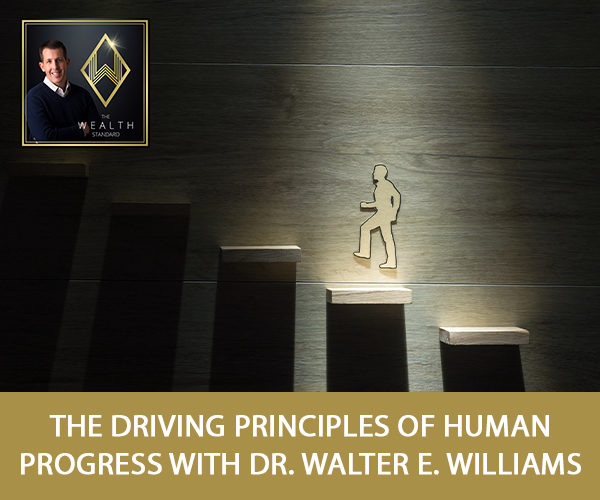
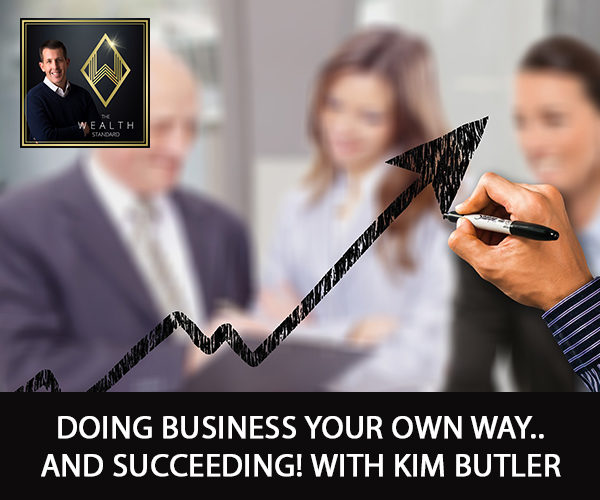
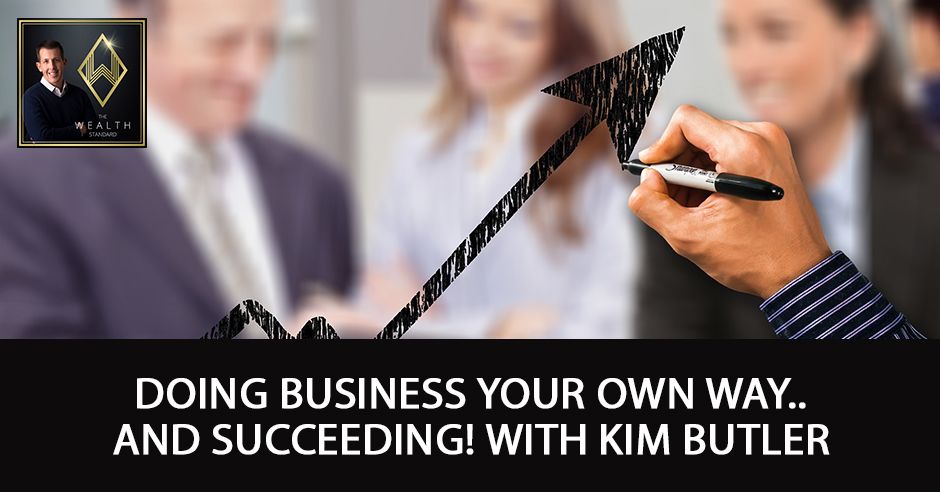
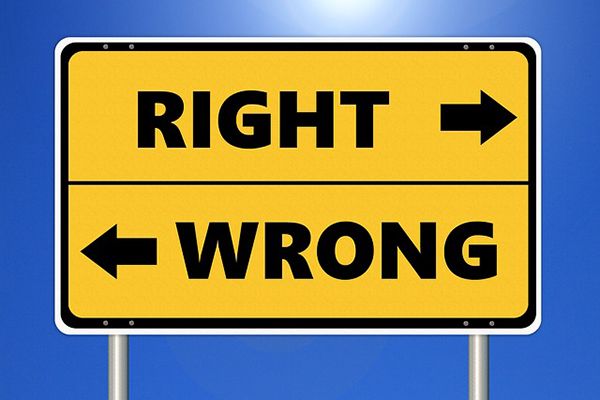


 Thank you for that. The best place I do believe is our main website
Thank you for that. The best place I do believe is our main website  Kim Butler is the founder of Partners for Prosperity and Co-founder of Prosperity Economics Movement. She is the host of The Prosperity Podcast; author of the bestselling books Live Your Life Insurance: An Age-Old Approach Revitalized, Live Your Life Insurance: Surprising Strategies to Build Lifelong Prosperity with Your Whole Life Policy, and the new book Busting the Real Estate Investing Lies: Build Wealth the Smart Way: Through the Most Time-Tested, Least Volatile Path to Financial Freedom.
Kim Butler is the founder of Partners for Prosperity and Co-founder of Prosperity Economics Movement. She is the host of The Prosperity Podcast; author of the bestselling books Live Your Life Insurance: An Age-Old Approach Revitalized, Live Your Life Insurance: Surprising Strategies to Build Lifelong Prosperity with Your Whole Life Policy, and the new book Busting the Real Estate Investing Lies: Build Wealth the Smart Way: Through the Most Time-Tested, Least Volatile Path to Financial Freedom.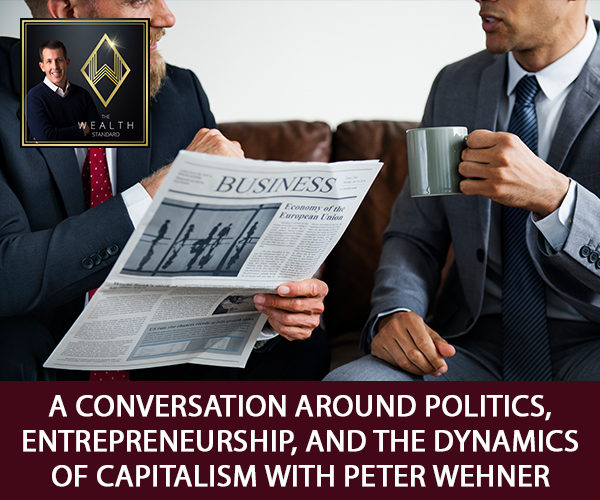
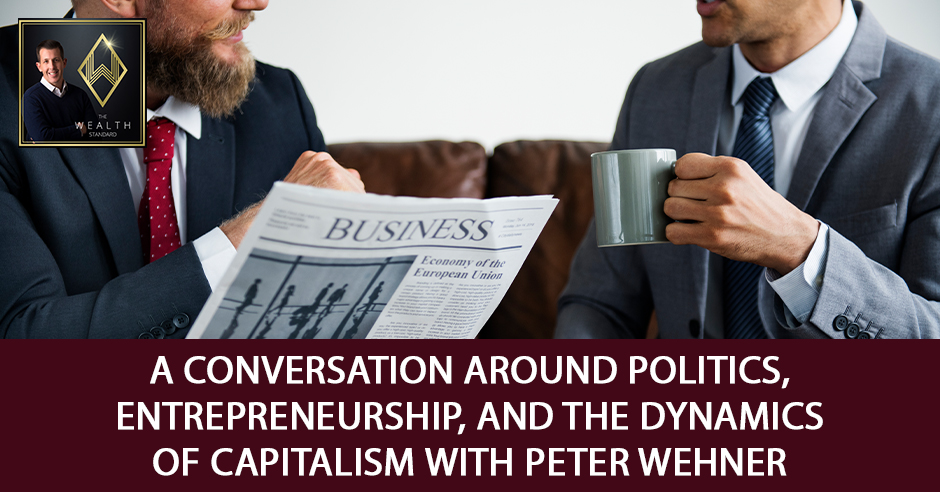



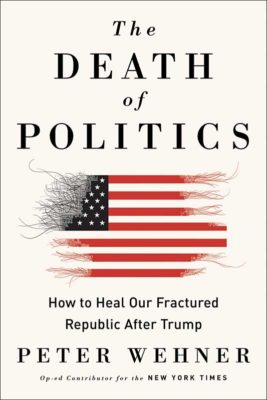
 Peter Wehner is the author of The Death of Politics. He is a New York Times contributing Op-Ed writer covering American politics and conservative thought and a popular media commentator on politics.
Peter Wehner is the author of The Death of Politics. He is a New York Times contributing Op-Ed writer covering American politics and conservative thought and a popular media commentator on politics.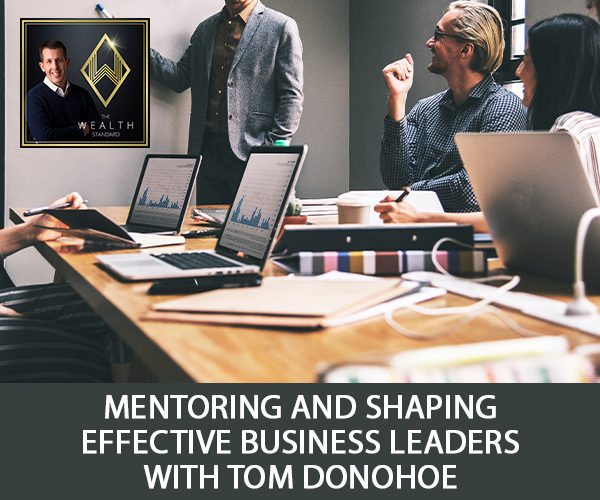
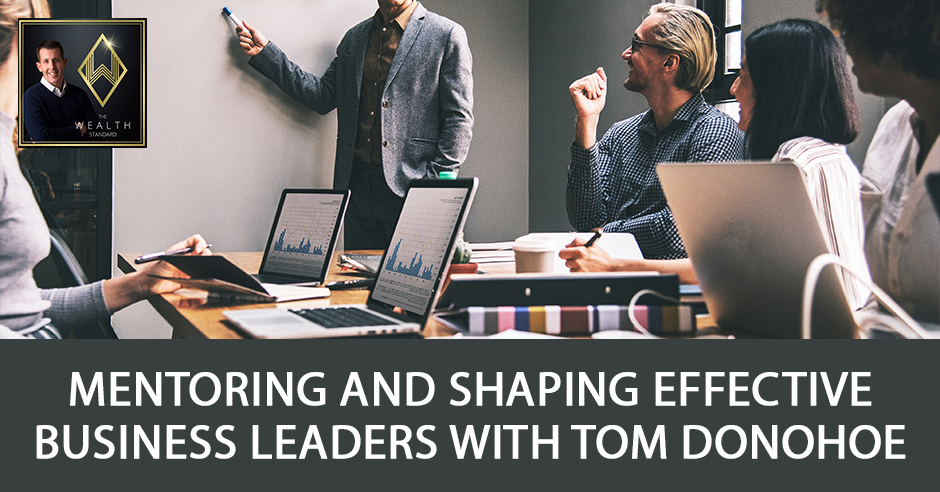





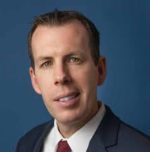 Tom Donohoe is a proven leader, problem solver and teamwork-oriented health care attorney who focuses on assisting business partners and clients in achieving their goals in a compliant manner consistent with their mission, vision and values.
Tom Donohoe is a proven leader, problem solver and teamwork-oriented health care attorney who focuses on assisting business partners and clients in achieving their goals in a compliant manner consistent with their mission, vision and values.